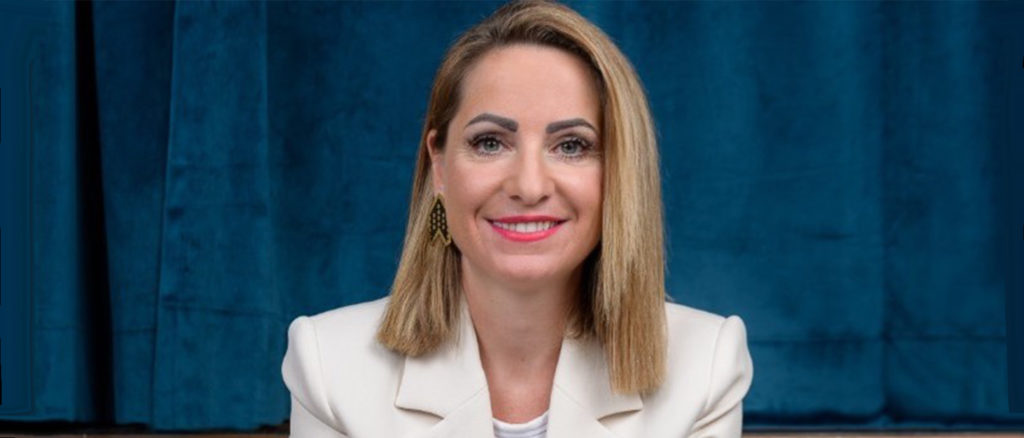Below are highlights from our conversation with Andreas Utermann on our podcast “Unlocking the Boardroom”.
Andreas Utermann serves as Chairman of the Board of Vontobel Holding since April 2022, previously serving as CEO of Allianz Global Investors. In addition to his impressive career, he also serves as a Governor for various academic institutions and as a Trustee with leadership roles in the UK. On a personal note, Andreas is a proud husband and father of three daughters. Being surrounded by powerful women his entire life, he is a passionate advocate for diversity and inclusion in the boardroom.
Benefits of Board Diversity
Essentially, the reason why diversity benefits, is because you make the organization more resilient, you get a better chance for ideas to be challenged in the right way. If you have more likeminded type of people, less diverse people, you have greater risk of group think. So that´s really the reason. We are not talking about organizations of five to twenty people, because they don´t require diverse boards. The reason why I make this point is because I do think that diversity is not always a requisite for success. I do think when I see this in the business world, that can be an advantage for people who start off their business, to have people around them that all think the same and have the same values and this can make it very powerful. When theses groupings become more significant organizations and get more complex, then diversity becomes more and more important. The larger the organization becomes the more you will see the benefits of diversity.
Gender Quotas on Boards
Firstly, given that women have been discriminated against, even it where the case, that now we will be positively discriminating in favor of women and therefore putting men in a disadvantage, it is about time, that men in general “took it on the chin”; they have daughters, they have wives, they have their own interests in all of this, and basically, having a period of twenty or thirty years, where there is an adjustment period, compared to five-thousand or ten-thousand years of discrimination in the other direction, I think we should be man enough (and I can say that as a man) to kind of take that on the chin. That is one dimension of it. The other one has more to do with diversity and what I have seen in my professional life. I don’t believe that pedigree, whether that’s expressed through university degree or through length of experience, is necessarily a determining factor when trying to appoint people to boards. I always felt that giving smart people a challenge that they have not encountered before has almost as much chance of success than giving a task to somebody who has supposedly the pedigree on the track record to complete the task. In the spirit of diversity, I have always tried to mix it up in terms of experience, and hence filling 40% of board roles with women. Women by large are equally intelligent as men.
Track and report
You need to figure out which part of the equation of diversity you are trying to address. I think if you are trying to address multiple dimensions of diversity at the same time, you are more likely to fail. You need to go sequentially. Every organization will have a different starting point and they will have different pressure points and different pain points. So, figure out which one it is that you want to address and don’t get into tracking too many different metrics. Track one, figure out which of the dimensions you want to address, and then figure out one metric that is going to get you there. Then be very clear about communicating it. And then ensure that this metric is linked to people’s incentives. So, the board can track as long as it likes. What’s going to happen if the board tracks, and that is all it does, it is going to notice that nothing changes. So that is not helpful. You need to ensure that it’s part of people’s incentives system. Then things will change. So if it is publicly reported and tracked, in the internal and external communication, and then embedded in people’s incentives, that is when you are going to get successful tracking at the board level and then you can work off one dimension every two or three years.
“The men that are on the short list, need to be the right men!”
I think it is very tricky, from what I’ve observed, for women not to be preserved as boxed in when they are fighting for gender equality. Because they are fundamentally preserved as conflicted. That’s why it is particularly important for boards to ensure that during the interview process, not only do they get the gender balance right, but particularly when it comes to the 50-70% of men, it needs to be the right men! Because otherwise you are not going to make any changes, right? We always focus on the women, we say that we at least need to have one woman on the short list – that’s true – but the men that are on the short list, they need to be the right men!
“Men need to do the heavy lifting”
Men need to do the heavy lifting. They need to ensure that they have balanced teams. They probably need to take coaching on board for those men who have not yet had a lot of exposure to women. To figure out what women need to help them be at the same starting position as the men in those teams; this may require to encourage them to speak up more frequently, but in order to be able to do that, you need to understand what’s holding them back. What is it that makes women maybe being at risk of being mansplained. It’s not just making sure that they pay them right and hire them right, but it requires the men to be coached themselves and listen carefully. The bottom line is this; in diverse organizations, managers, men and women, need to be aware of the seven cultures of Capitalism. People have very different approaches to how they feel, how they think, how they operate. It requires much more training than most people think.
If you want, you can listen to the full episode here.







